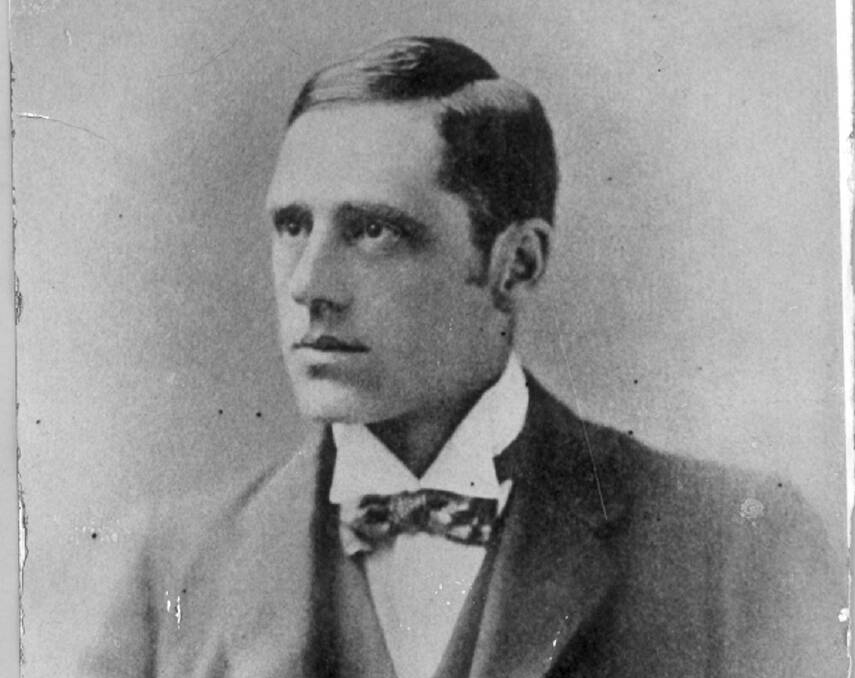Whatever happened to the Hexham Grey mosquito?
Subscribe now for unlimited access.
$0/
(min cost $0)
or signup to continue reading
This type of mozzie is bigger than your stock-standard variety.
Back in the day, the Hexham Grey was common.
Bob “Minmi Magster” Skelton told Topics that “you don’t see them now”.
“I haven’t seen one for years. They must be on the endangered species list,” he joked.
“I remember when they’d cover your arm like a second skin. I don’t kid ya,” he said.
“You’d run your hand down your arm and wipe 20 or 30 mosquitoes off.”
Sometimes you’d hear them buzzing outside.
“As soon as you walked out, they were straight onto you – like a swarm of bees.”
Ozzie the Mozzie at Hexham Bowling Club is based on a Hexham Grey.
The Magster – well known as a bush poet – wondered about the Hexham Grey, after reading a Herald story in which health authorities warned to expect “peak numbers” of mosquitoes until Easter.
Recent rain and king tides had created ideal breeding conditions for the pesky insects.
The Magster said the Hexham Grey mozzies were part of Australian folklore.
“Banjo Paterson mentioned them in a poem he wrote over 100 years ago,” he said.
The poem, How the Favourite Beat Us, was published in the book, The Man from Snowy River and Other Verses.

The Hexham part goes like this:
They breed ‘em at Hexham, it’s risky to vex ‘em,
They suck a man dry at a sitting, no doubt,
But just as the mare passed, he fluttered my hair past,
I lifted my hand and I flattened him out.
It’s a poem about a gambler who owns a horse named Cracker.
Before the race, the horse owner tells his jockey to win, only if he gives a signal by raising his hand.
The horse quickly becomes the favourite. When the odds narrow to 6/4, the bookies shut up shop. This being the case, the horse owner can’t back his own horse.
As the jockey rides past on Cracker, the owner raises his hand to swat a big “Hexham mosquito”.
The jockey sees the hand raised and goes on to win the race.
The owner does his dough, having bet every shilling he had against his own horse.
The Magster said Banjo was saying that “it doesn’t pay to tangle with a big Hexham Grey mozzie”.
The Magster wrote his own poem about the mozzies, titled The Hexham Grey.
The first verse goes like this:
The Territory has huge crocodiles,
Queensland the taipan snake,
And wild scrub bulls are the biggest risk over in the western state,
But if ever you’re in NSW, round our Hunter Valley way, look out for them giant mozzies, the dreaded Hexham Grey.
Reboot Your Thinking
What are the great moral challenges of our time?
Russell Blackford, a Conjoint Lecturer in Philosophy at the University of Newcastle, has pinpointed one of them.
In a piece published on The Conversation website, Russell wrote that a great moral challenge was the problem of people dismissing ways of thinking because it doesn’t suit their politics or dogma.
“Once an issue becomes politically toxic, we may reject inconvenient viewpoints out of hand. We may reject opponents – viewing them as ill-disposed people – without listening to them, and we may even try to punish them for their views,” Russell wrote, referring specifically to social media shaming.
“All too often, we automatically dismiss ideas with potentially unsettling implications for our worldviews. We may go further in rejecting, and even attempting to harm, the messenger.
“It doesn’t have to be this way, but it has become so common that it frustrates good-faith efforts to discuss and solve the large problems confronting humanity in the 21st century [like climate change].
“Such rejection of messages and lashing out at messengers blocks useful discussion across moral and political divides.
“To make progress, we will need to reboot our thinking. We need to focus on evidence and arguments, and on ordinary fairness and compassion to others, even when we disagree.”

